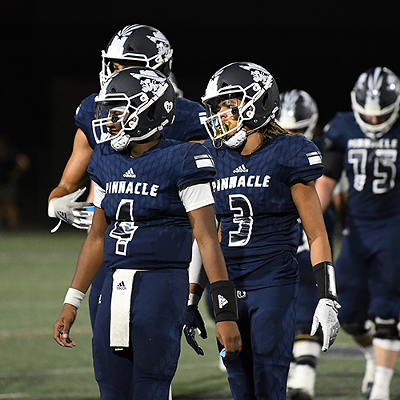There is a documentary film called The Heart of the Game, which was released late last month on DVD. It follows a Seattle high school girls basketball team over several successful seasons. However, the last season left me infuriated. And that anger has added an extra dimension of disappointment, because I can't find anybody who shares my view.
The team is coached by a middle-age guy who teaches tax law at the University of Washington. He coaches out of love of the game, and he's very good at it. He's kinda nuts, but I understand his passion. Year after year, he assembles monster squads of players who put up huge numbers in the regular season, only to crash in the state playoffs.
One year, it's a lucky shot; another time, his team plays like crap.
His team's success attracts the attention of a kid from another part of town who might just be the missing piece of the puzzle. She enrolls in the school and makes the varsity team as a freshman. She's everything the coach was dreaming about, and then some. By her junior year, they're the best in the state, but in the tournament, she's not feeling well, and they get upset, yet again.
Turns out she's pregnant. She drops out of school, has her kid and is gone for a year and a half. But then she shows back up in school and wants to play again. The body that governs high school sports in Washington says no freakin' way. She's 19 years old; she's missed three semesters of school; what should have been her senior year has come and gone.
The coach gets a lawyer and sues the governing body, claiming sex discrimination. They argue that if a boy would have had a part in creating a baby, he wouldn't be penalized. Interesting point, but completely irrelevant.
They play the entire season, fighting legal battles along the way, and eventually win the championship. Sorry, but that's wrong.
I agree completely with their legal argument: It is unequal treatment along gender lines. My point is that it never should have gotten to court. That coach should have told her that she couldn't play. It's just not right.
I've discussed this with probably 20 people, including a handful of coaches, and the same clichéd lines keep coming up:
· She made a mistake. Well, no. Wearing one brown sock and one blue sock is a mistake. Creating a human being is a life decision.
· This is a way to keep her in school. These are the same people who think we should pay college athletes. Sorry, an education is its own reward, and if a kid is too dumb to see that, I'm not going to attempt enticements.
· Basketball is important to her. Obviously, it wasn't important enough to keep her from climbing into the backseat with Buster. If you want something badly enough, you'll do whatever's necessary to get it. For high school athletes, that includes not drinking or smoking; going to school and getting good grades; not hanging with your knucklehead friends; and not having sex. Too steep a price? Don't play.
And if the coach wants to keep her around, let her be the team manager. Let her practice, but don't let her play. She doesn't deserve to play.
I'm not naïve enough to think that every kid who has ever played for me was a virgin at the time. In fact, I tell kids at the start of every season exactly what conduct will get them kicked off my team forever, including drinking, using drugs and getting pregnant. And yes, if I were coaching a boys team, and one of my players got his girlfriend pregnant, he'd be gone, too.
· But those other things are illegal. In most cases, teenagers having sex isn't. True enough. But a kid getting in my face and talking about my mama isn't against the law, either, but that'll get you bounced. So will missing a lot of practice or getting bad grades or being disrespectful to your parents. Champions pay the price, and sometimes, that price is high.
What bothers me the most is that the coach believes he's doing the right thing. What message does that send to every other kid in his program? That's OK; screw around; screw up; if you're a good ballplayer, you'll still get to play.
It's also unfair that the player was 19 and a woman when she went back. Back in the 1980s, the East Germans supposedly used to impregnate female athletes a few months before the Olympics, then abort the babies right before competition began. This surge in hormones gave the athletes a competitive edge.
Interestingly, current UA player Malia O'Neal is in the film, playing on the team that lost in the championship game. I wonder if she thinks it was OK for that woman to play. If she does, then she's wrong, too.










